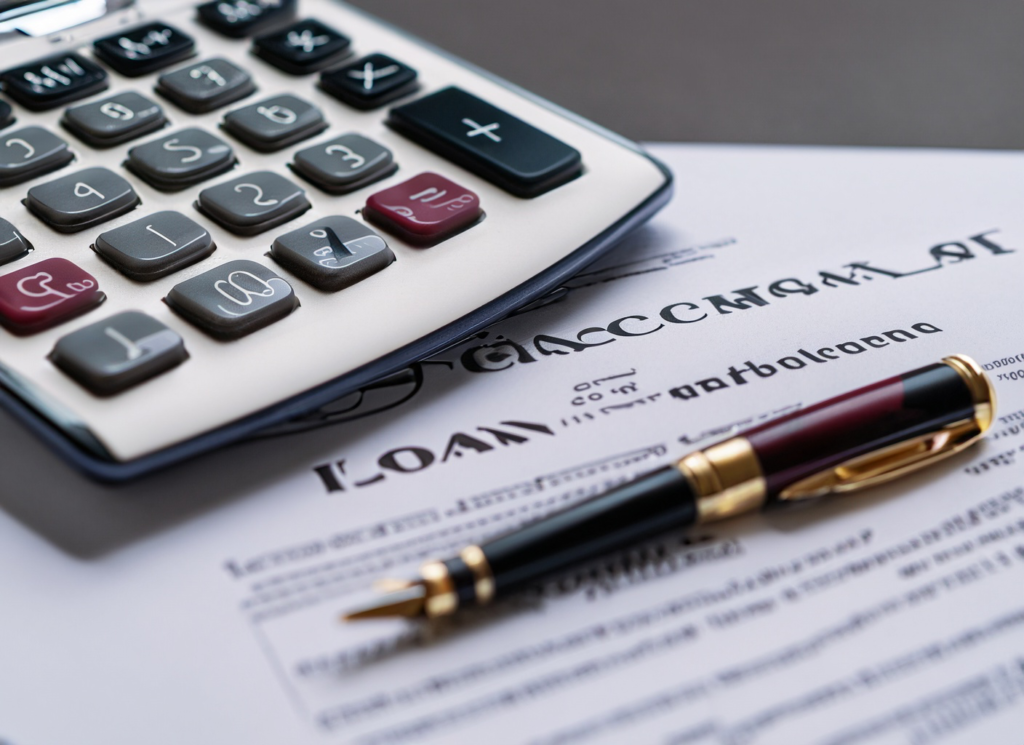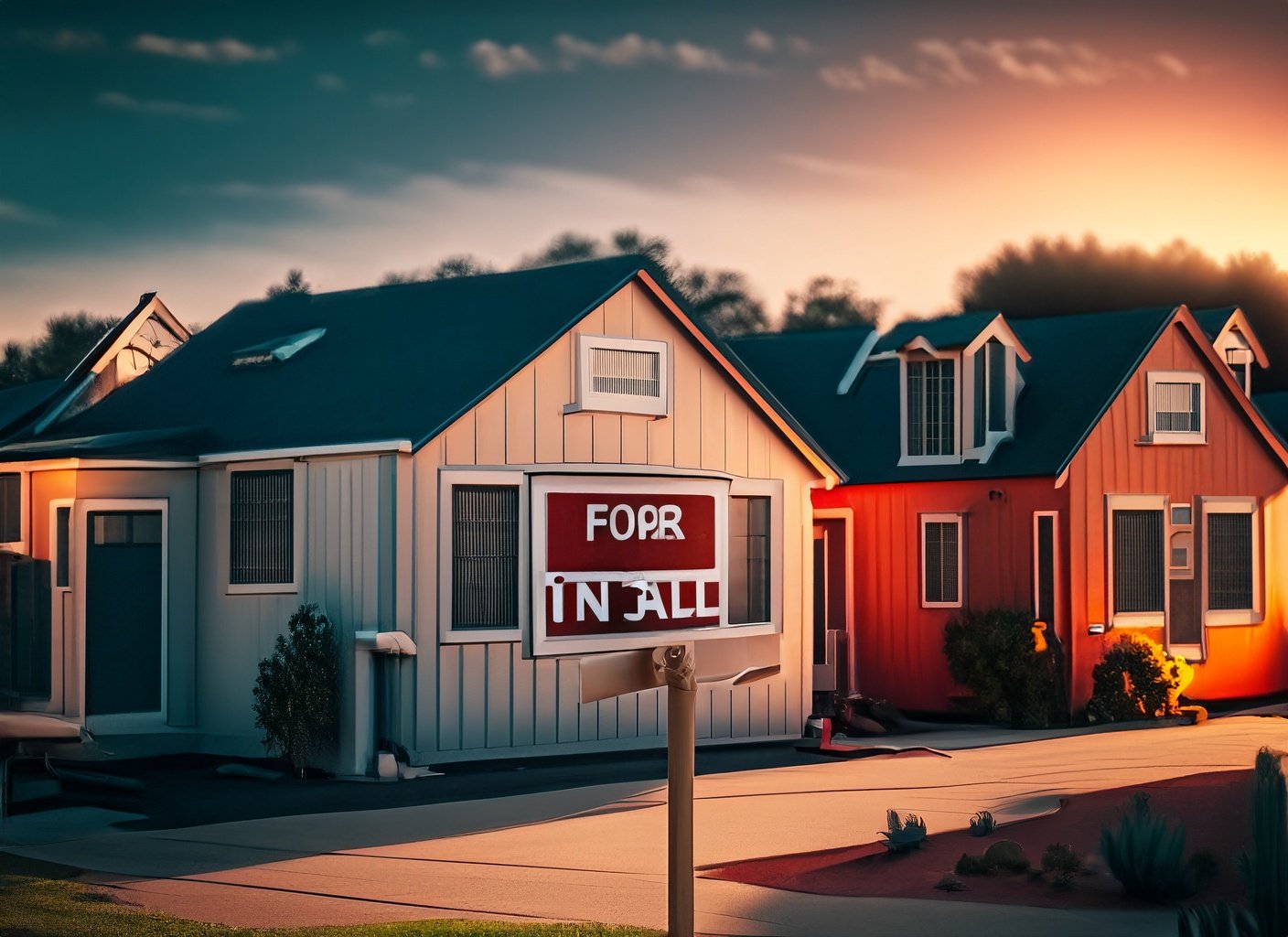
Imagine finding the perfect traditional or modular home that fits your budget and lifestyle as your primary residence. Whether you’re looking to buy or sell real estate, we can help you find the ideal property. You’ve been dreaming of homeownership education and owning a primary residence, but traditional real estate homes seem out of reach. Consider a reverse mortgage. That’s where manufactured homes come in. Modular and mobile homes are gaining popularity among individuals like you seeking affordable and flexible housing options for homeownership without breaking the bank. These modular and mobile homes offer a more affordable alternative to traditional homes, and can even be financed with a reverse mortgage.
But before you dive into mobile homes, it’s essential to understand the ins and outs of financing, including mobile home loans and home mortgages. Additionally, make sure to educate yourself on homeownership education. Unlike traditional mortgage home loans, financing options for manufactured homes, also known as mobile homes, differ in various aspects. These options include FHA Title I loans, specifically designed for financing the purchase or refinancing of a manufactured home or a lot on which to place the home. The Federal Housing Administration backs these loans and can be used to finance both the purchase of a new manufactured home and the repair or upgrade of an existing one. This type of loan is available for both real property and personal property. From understanding home financing options, including home loan rates and credit requirements, to navigating escrow and construction processes for a home purchase, there’s much to consider, especially when obtaining a manufactured home loan.
Don’t worry; we’ve got you covered! We’ll explore different home financing loan options, discuss factors that impact home mortgage interest rates, and shed light on important aspects like titles and permanent foundations for land and property.
So let’s get started on your journey towards affordable homeownership with mobile homes and FHA title mortgage for manufactured homes (MH)!
Understanding Loan Options for Manufactured Homes

Chattel loans are a popular choice. These mortgage loans allow you to borrow money specifically for mobile homes rather than the land they sit on. FHA title loans are available for this type of property. Home financing options for mobile homes (MH) often have shorter loan terms and higher interest rates than traditional property mortgages.
FHA loans are another option worth considering. These mortgage loans, specifically for mobile homes, are backed by the Federal Housing Administration. They offer low down payment options and competitive interest rates for qualifying borrowers looking to purchase or refinance their property. FHA loans can be a great solution if you’re looking to buy a new or used manufactured home, also known as a mobile home. These loans can help you secure a mortgage for your mobile home, allowing you to own and place the title on your chosen site.
If you prefer a more conventional approach, you can also explore getting a mortgage for your mobile home property through the title program. Conventional mortgages can be obtained for both new and used mobile homes, whether on owned or leased property. The title program allows for easy transfer of ownership. Like traditional homes, these mortgages for mobile homes typically come with longer loan terms and lower interest rates than chattel loans. This program offers a great opportunity for those looking to finance their mobile homes.
Understanding what works best for your financial situation, especially mortgage and manufactured home loan options for mobile homes is important. Chattel loans for mobile homes usually have maximum loan terms of 20 years, while FHA and conventional mortgages may offer longer repayment periods of up to 30 years.
To summarize:
- Chattel loans are ideal if you need financing for a mobile home mortgage not permanently attached to the land.
- FHA loans for mortgages provide low down payment options and competitive interest rates for mobile home buyers.
- Conventional mortgages work well for new and used mobile manufactured homes on owned or leased land.
- Loan terms for mortgages and mobile home loans vary depending on the type of loan, with chattel loans for mobile homes typically having shorter repayment periods.
Now that we’ve covered the various mortgage loan options for financing mobile manufactured homes let’s explore some additional considerations in our next section.
Qualifying for Manufactured Home Financing

To qualify for financing for your mobile home mortgage, there are a few important factors that lenders will consider. Let’s look at these factors, such as mortgage and mobile home, and how they can impact your ability to secure a loan.
Credit Score, Income Stability, and Debt-to-Income Ratio
When evaluating mortgage loan applications for mobile manufactured homes, lenders will typically consider your credit score, income stability, and debt-to-income ratio. These factors help them assess your financial health and determine whether you will likely repay the mortgage loan for your mobile home.
- Credit Score: A higher credit score generally indicates better financial responsibility and makes you more attractive to mortgage lenders for a home loan. Additionally, having a good credit score is important when applying for a loan to purchase a mobile home.
- Home loan lenders want to see that you have a stable source of income to ensure you can make timely payments on your mortgage, whether for a traditional home or a mobile home.
- Debt-to-Income Ratio: This ratio compares your monthly mortgage, home loan, and mobile home debt payments to your gross monthly income. Lenders prefer borrowers with lower mortgage ratios, which suggests they have more disposable income for their mobile home.
Specific Requirements for Loan Programs
In addition to the borrower’s qualifications, certain mortgage loan programs may have specific requirements regarding the age and condition of the mobile home.
- The Federal Housing Administration (FHA) offers mortgage loans specifically designed for mobile homes. These mortgage loans require the home to meet certain standards the FHA sets, ensuring that mobile homes are eligible.
- Conventional Loans for Mobile Homes: Traditional mortgage programs may also be available for qualified borrowers looking to finance their mobile homes. However, when it comes to mortgage loans for mobile homes, they often require higher credit scores and larger down payments compared to FHA loans.
Down Payments Vary
The amount of down payment required for financing a mobile home mortgage can vary depending on the type of loan and borrower qualifications.
- FHA Mortgage Loans: FHA loans for mobile homes typically require a minimum down payment of 3.5% of the purchase price.
- Conventional Loans for Mobile Homes: Conventional loans for mobile homes may require larger down payments ranging from 5% or more, depending on the lender’s requirements.
Meeting these qualifications and requirements is essential to increase your chances of securing financing for your mobile manufactured home. It’s always a good idea to consult with mobile lenders specializing in manufactured home loans to explore your options further.
Exploring Additional Expenses and Regulations
When financing a mobile manufactured home, it’s important to consider more than just the purchase price. Mobile buyers should budget for various fees and costs to ensure they can comfortably afford their new home. Some regulations and requirements impact where mobile manufactured homes can be placed.
Additional Expenses to Consider
In addition to the cost of the mobile home itself, buyers should be aware of other expenses that come with mobile home ownership. These may include:
- Mobile home insurance: It’s important to research options and find coverage that fits your needs and budget.
- Mobile Property Taxes: Like traditional homes, mobile manufactured homes are subject to property taxes, so it’s essential to factor this into your mobile financial plan.
- Monthly utility bills for electricity, water, and gas should also be considered when budgeting for a mobile manufactured home.
Zoning Regulations and Building Codes
Before purchasing a mobile manufactured home, it’s crucial to understand the zoning regulations for mobile homes in your area. Different communities may have restrictions on where these mobile homes can be placed. Building codes ensure safety standards are met during construction.
Community Restrictions
Some communities may have additional restrictions on manufactured homes. These could include limitations based on age or appearance. Before deciding on a mobile home, it’s crucial to research any community-specific requirements.
By considering these additional expenses and understanding the regulations surrounding mobile manufactured homes, buyers can make informed decisions about financing options for their mobile home and find the right home within their budget.
Step-by-Step Guide to Financing a Manufactured Home

To successfully finance a manufactured home, follow these steps:
Determine Your Budget
Assess your financial situation and research the potential costs of owning a mobile manufactured home. Consider expenses such as the purchase price of a mobile home, land lease fees (if applicable) for the mobile home, insurance for the mobile home, utilities for the mobile home, and maintenance for the mobile home. This will help you determine how much you can afford for a mobile home and set a realistic budget.
Shop Around for Lenders
Look for lenders who specialize in financing manufactured homes. They understand the unique aspects of mobile homes and can offer better terms and rates than traditional home lenders. Take your time to shop around and compare different mobile home options to find the best deal that suits your needs.
Gather Necessary Documentation
Before applying for a mobile home loan, gather all the necessary documentation. This typically includes proof of income, employment history, credit reports, and any other documents the mobile home lender requires. Having these mobile home documents ready beforehand will streamline the application process.
Apply for a Loan
Once you have chosen a lender for your mobile home loan and gathered all the required documentation, it’s time to apply. Fill out the mobile home application form accurately and provide all requested information. Be prepared for additional requests or clarifications from the lender during the review process, especially if you are applying for a loan for a mobile home.
Review Loan Terms
Once your mobile home loan application is approved, carefully review the terms and conditions provided by the mobile home lender. Pay close attention to interest rates, repayment period, monthly payments, and any additional fees or charges associated with the mobile home loan.
Close on Your Loan
After reviewing and accepting the loan terms for your mobile home, you’ll proceed with closing on your loan. This involves signing legal documents related to financing your manufactured home. Before signing any documents related to a mobile home, ensure you completely understand your agreement.
By following this step-by-step guide, you’ll be well-prepared for financing your dream manufactured home!
Resources and Lenders for Manufactured Home Loans
If you want to finance a manufactured home, various resources and lenders are available to help you navigate the process. Online resources can provide valuable information about financing options tailored to manufactured homes. Some lenders specialize in providing loans for manufactured homes.
Specialized Lenders
Some lenders specializing in manufactured home loans include 21st Mortgage Corporation, Vanderbilt Mortgage & 21st Century Housing Solutions, and Triad Financial Services. These lenders have expertise in understanding the unique aspects of manufactured home financing and can guide you through the loan application process.
Local Credit Unions and Banks
In addition to specialized lenders, local credit unions and banks may offer financing options for manufactured homes. These mobile home options are worth exploring as they may provide competitive loan rates and terms. You can contact your local credit union or bank to inquire about their loan programs for manufactured homes.
Different Loan Programs
There are different loan programs available. Some common types of loans include:
- Conventional Loans for Mobile Homes: These are traditional mortgages offered by banks or financial institutions for mobile homes.
- Chattel Loans: These loans focus on the personal property aspect of a manufactured home rather than the land it sits on.
- Personal Loans: In some cases, you may be able to obtain a personal loan from a lender to finance your manufactured home.
When looking for financing options for a mobile home, it’s crucial to research different lenders and loan programs to find the best fit for your specific needs. When deciding on a home, it is important to consider factors such as interest rates, repayment terms, and eligibility requirements.
Remember that each home lender may have its criteria for approving home loans, so gathering all necessary home documents and accurately completing the home loan application is essential.
By utilizing online resources and exploring specialized lenders and local credit unions or banks, you increase your chances of finding suitable financing options for your dream manufactured home. Take the time to compare home loan rates and terms, ensuring you make an informed decision that aligns with your home financial goals.
Key Takeaways on Financing for Manufactured Homes

Congratulations on completing the sections on financing for manufactured homes! You’ve gained valuable insights into home loan options, qualifying criteria for a home, additional expenses related to buying a home, and a step-by-step guide to securing financing for your home. Now that you’re armed with this knowledge, you’re well-prepared to make informed decisions about financing your dream home.
Remember that researching lenders and resources specific to manufactured home loans is crucial. Explore different lenders who specialize in home financing options and take advantage of the various financing options available for your home. Don’t hesitate to ask for home assistance or advice during the home-buying process – home professionals are ready to help you navigate every step.
FAQs
What credit score do I need to qualify for a manufactured home loan?
A credit score of 620 or higher is generally recommended to qualify for a manufactured home loan. However, some home lenders may have more flexible requirements depending on other factors such as home income and down payment.
Can I use an FHA loan for a manufactured home?
Yes, FHA loans can finance purchasing and refinancing qualified manufactured homes. These home loans often offer lower down payment requirements and more lenient credit score criteria than conventional home loans.
How much down payment do I need for a manufactured home loan?
The required down payment amount for a home varies depending on factors such as your creditworthiness and the type of loan program you choose. Generally, down payments range from 5% to 20% of the home’s total cost.
Are there any grants or assistance programs available for financing a manufactured home?
Yes, grants and assistance programs are available that can help finance a manufactured home. Programs like HUD’s Manufactured Housing Program provide financial support and resources specifically tailored towards assisting individuals in purchasing affordable home housing.
Can I get pre-approved for a manufactured home loan?
Getting pre-approved before starting your search for a manufactured home is highly recommended. Pre-approval will give you a clear understanding of your budget and allow you to negotiate when making an offer on a home.









Leave a Reply